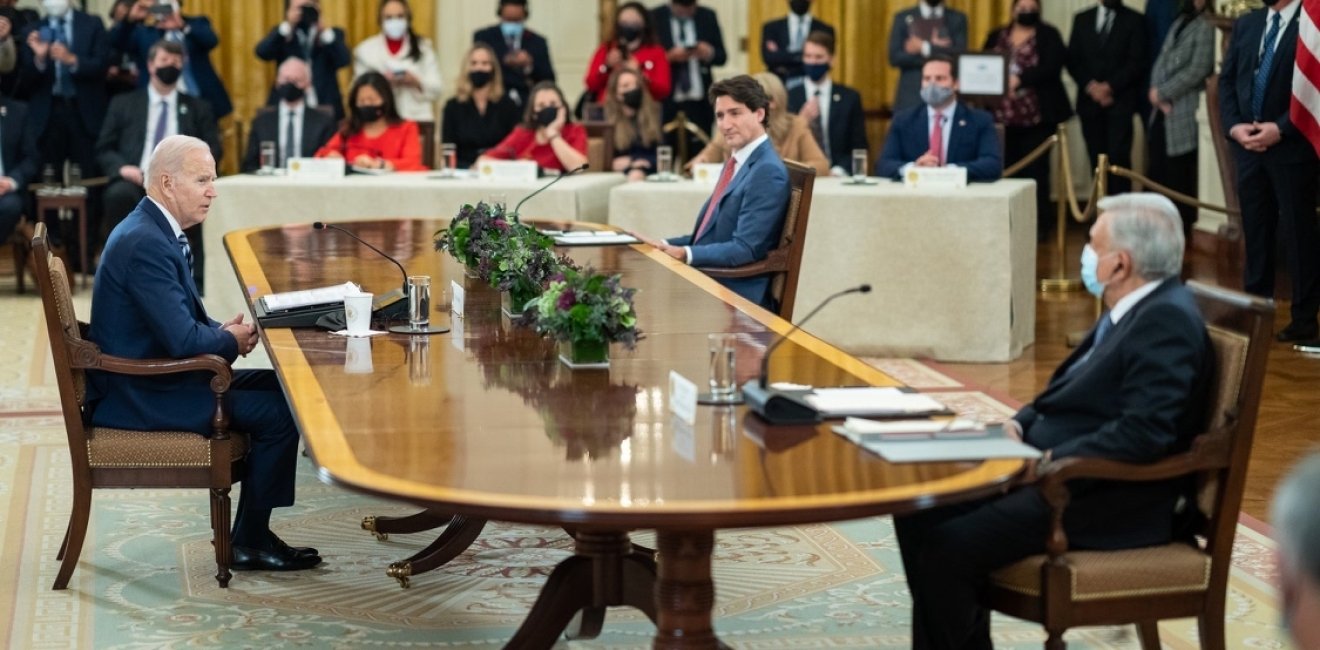There is little doubt of the importance of dialogue to strengthen, maybe even save, North America as a commercial partnership and competitive region. The context and recent history are crucial to understand the potential and obstacles the trilateral summit will most likely face.
Likely topics are immigration, security, commercial integration and rules, and the elephant in the room: climate change along with energy as an essential and transversal issue.
For most of these topics Canada and the US seem aligned, Mexico not so much or outright not at all. The Biden administration has been very clear about climate change as one of its main policy objectives and giving it top national security relevance. Mexico, however, is on a completely different trajectory. Last April at a climate summit President Andres Manuel Lopez Obrador decided to talk about PEMEX discovery of three new oil fields and how this discovery would lead to avoid “excessive” use of fuels: crude from those fields would not be exported. This of course is far from a correct technical statement. It sounds completely out of touch with the planet’s most pressing social imperatives, but it does give insight into the core of AMLO’s administration policy views and objectives both on climate change and energy.
If energy policy were the only symptom of Mexico’s disregard for the environment the way forward would be less complicated, it’s not. President Lopez Obrador has been adamant about the benefits of his “Sembrando Vida”[1] program which is basically a tool for deforestation and opposed to the nature-based solutions toolkit adopted as crucial by most institutions concerned with climate change policy. Climate change policy has not been a priority, the President did not attend the latest COP meeting in Glasgow nor did his administration deliver a meaningful policy statement. Mexico’s domestic and international climate change commitments will not be met mostly because they’re opposed to one of the administration’s top priorities, refining and the rescue of both energy state owned energy companies, PEMEX and CFE, whatever “rescue” means.
The government is building a new refinery, trying to amend the Constitution to change how electricity generation is hierarchized to meet demand and prioritize high Sulphur fuel oil thermal units owned by CFE. Fuel oil is massively produced by PEMEX’s refineries as a byproduct with almost no alternative commercial outlet. The result is an almost cynical disregard for emission reductions, local air quality standards and climatic impact. A victim of these policies and priorities has been renewable and clean electricity generation. Most of these plants are privately owned and are the focus of regulatory and legal uncertainty as a perverse side effect of the president’s energy priorities.
In this context Mexico’s energy and climate policy are dramatically opposed to both the US and Canada’s but as dramatic as this might be it will likely create more pressure on Mexico’s rule of law and economic development potential. The judiciary has opposed every legal measure aimed at changing electricity’s competitive and market based legal framework. Loss of certainty and investment climate deterioration are both bad for economic development. However, the most pressing short-term worries are will electricity generation be enough to meet demand. Will it be regionally competitive if CFE acts as the sole buyer and supplier? What is the best use of public resources? Is regional integration or cooperation possible without the energy sector? In the long run of course, can Mexico disregard its citizen’s aspiration to tackle climate change and its effect on everyday life and our future? Are these issues negotiable with the objective of a more manageable immigration strategy for the USA? Not in my opinion.
[1] Economic incentives for reforestation with fruit trees and orchards and not endemic species. Forests have been burned down for orchards trying to claim the program’s resources.








